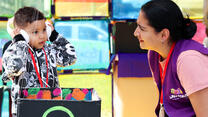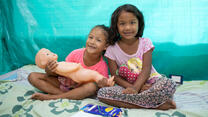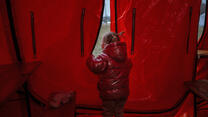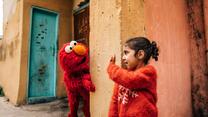This week, many kids in the United States return to class for the start of a new school year. But for the millions of children around the world facing conflict and crisis, lessons this year look very different.
Here’s how the IRC is supporting education for children in Gaza, Ukraine, Pakistan, Mali and Colombia.
Ukraine
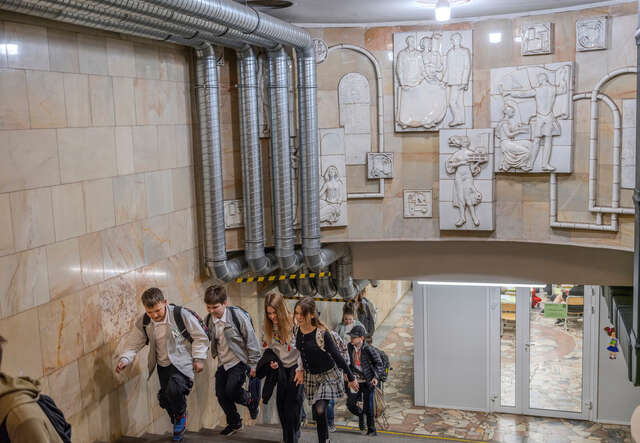
Kharkiv, located just 40 kilometers from the Russian border, has faced constant shelling with various types of missiles for the past three years. Despite this, it remains a large and vibrant city where many families with children have chosen to stay.
Most schools continue to operate online, but in an effort to provide safer in-person learning, the city has launched an innovative initiative: metro schools. Metro schools are classrooms set up directly inside Kharkiv’s metro stations, which double as bomb shelters.
Following a weekly schedule, different city schools rotate through these spaces to hold in-person lessons. While not a daily solution, this approach allows children to study offline, see their classmates face-to-face, and take a break from screen-based learning. It also ensures their safety, as the metro stations provide secure shelter even during air raids.
For children who have studied remotely for nearly five years—first due to COVID-19, then because of the war—this initiative is not only a lifeline for their education, but also for their emotional wellbeing.
From time to time, the IRC holds psychosocial support sessions in these underground schools. These sessions help children better understand their emotions, learn how to cope with stress, and build healthy communication skills in a supportive environment.
Pakistan
In Pakistan, 1 in 3 are currently not in school. In a remote area of the country’s Balochistan region, this run-down building is the only school accessible for many children.
With help from the IRC and its partners, the school is set to be fully rebuilt over the coming months to better serve the needs of the families that rely on it.
Gaza
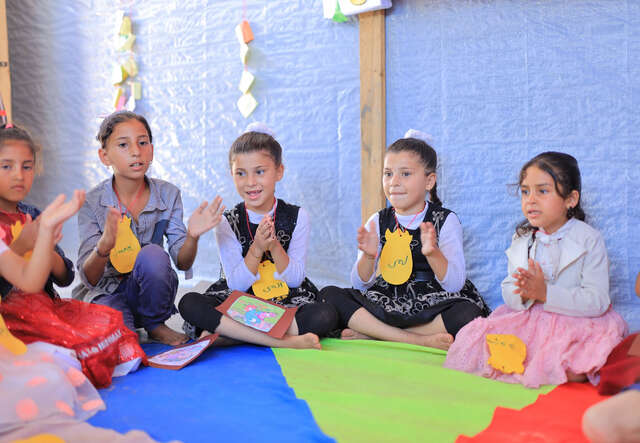
In Gaza, the scale of destruction has left thousands of children unable to attend school.
But the IRC and its partners are still working tirelessly to create spaces for early learning, childhood development and play, like at the Basmet Amal Center in Khan Younis.
Here, kids are able to laugh, learn, and connect, while caregivers are offered guidance on positive parenting and mental well-being.
These sessions offer vital relief and connection for families navigating the challenges of displacement.
Colombia
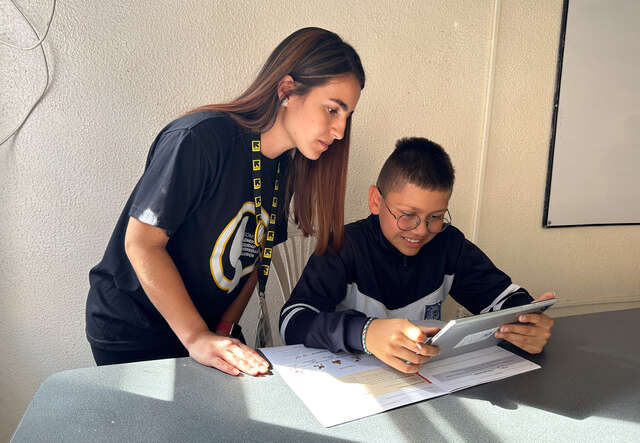
In Colombia, the IRC is using new technology to support remote learning for children aged 13-18.
AudioClass is an interactive platform used by children in hard-to-reach areas with limited access to schooling. The platform delivers interactive content, including literacy and numeracy exercises, as well as gamification, engaging audio guides, and a teacher dashboard.
AudioClass can be accessed on any device that students and teachers have available, helping the most vulnerable students in hard-to-reach settings to get an education.
Mali
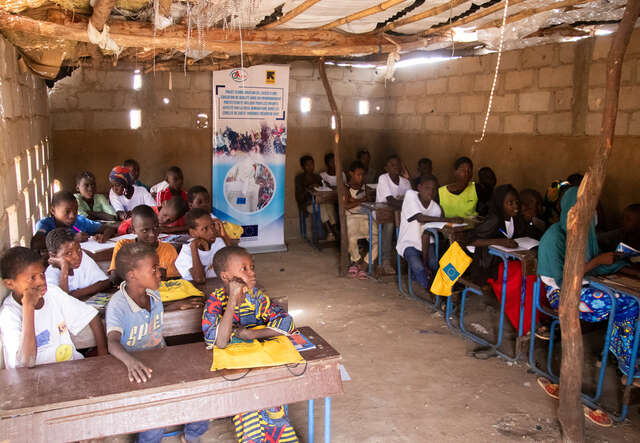
In Gao, Mali, the IRC is delivering flexible learning for children displaced by conflict.
A mix of accelerated learning, pathways from Quranic schools, individual support and remedial classes led by our partners Azhar are helping to ensure education is safe and inclusive for children with a range of different experiences.
What is the IRC doing to support education in crisis-affected communities?
The IRC is a global leader in providing customized education services to assist communities affected by crises. The IRC aims to provide children with safe, quality education opportunities that equip them with essential skills to survive and flourish, no matter their location.
How can I support education in times of crisis?
The IRC is active in more than 40 crisis-affected countries around the world, working to help people survive, recover and rebuild their lives. A cornerstone of our work is promoting educational outcomes in the communities that need it most.
